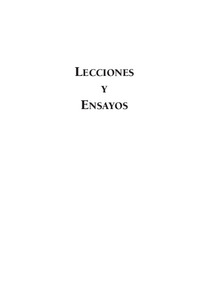Please use this identifier to cite or link to this item:
https://repositorio.uca.edu.ar/handle/123456789/6860| Título: | La geopolítica sudamericana de Brasil en el siglo XXI | Autor: | Calle, Fabián C. | Palabras clave: | POLITICA EXTERIOR; BRASIL; AMERICA DEL SUR; DEFENSA; RELACIONES INTERNACIONALES; GEOPOLITICA | Fecha de publicación: | 2008 | Editorial: | Pontificia Universidad Católica Argentina. Facultad de Ciencias Sociales. Departamente de Ciencias Políticas y Relaciones Internacionales | Cita: | Calle, F. La geopolítica sudamericana de Brasil en el siglo XXI [en línea]. Colección. 2008, (18-19). Disponible en: https://repositorio.uca.edu.ar/handle/123456789/6860 | Resumen: | Resumen: La combinación de masa crítica de poder material, la estabilidad económica y política alcanzada por Brasilia así como la existencia de ciertos consensos básicos en material de política exterior y seguridad, parecen darle a Brasil roles y agendas de una potencia regional que comienza a emerger lentamente como actor global. Brasil, aprovechando la estabilidad y, más recientemente, su crecimiento económico, viene desarrollando una inteligente estrategia de posicionamiento regional e internacional. En la misma se combina la tradicional estrategia de buscar una posición de liderazgo sin caer en amenazas o conflictos armados y de articular prácticas de consulta y cooperación con sus múltiples vecinos. No obstante, el escenario actual presenta algunas novedades como el intento de administrar y aprovechar la existencia de la revolución bolivariana en Venezuela y el clima de creciente tensión entre Caracas y Washington. Abstract: The combination of material power critical mass, economic and political stability reached by Brasilia, as well as the existence of certain basic consents referring to foreign policy and security, seems to give Brazil roles and agendas of a regional power that begins to emerge slowly as a global actor. Brazil, taking advantage of its stability and, more recently, its economic growth, is developing an intelligent regional and international positioning strategy. It combines the traditional strategy of seeking a position of leadership without falling in threats or armed conflicts and one of articulating practices of consultation and cooperation with its multiple neighbors. Nevertheless, the current scenario presents some innovations as the intent to administer and to take advantage of the existence of the Revolución Bolivariana in Venezuela and the atmosphere of growing tension between Caracas and Washington. |
Cobertura Espacial: | SIGLO XXI | URI: | https://repositorio.uca.edu.ar/handle/123456789/6860 | ISSN: | 1850 003X (en linea) 0328 7998 (impreso) |
Disciplina: | CIENCIA POLITICA | Derechos: | Acceso Abierto | Fuente: | Colección. 2008, (18-19) |
| Appears in Collections: | COL - 2008 Año XIII-XIV nro. 18-19 |
Files in This Item:
| File | Description | Size | Format | |
|---|---|---|---|---|
| 811-2690-1-PB.pdf | 84,27 kB | Adobe PDF |  View/Open |
Page view(s)
307
checked on Apr 30, 2024
Download(s)
126
checked on Apr 30, 2024
Google ScholarTM
Check
This item is licensed under a Creative Commons License

